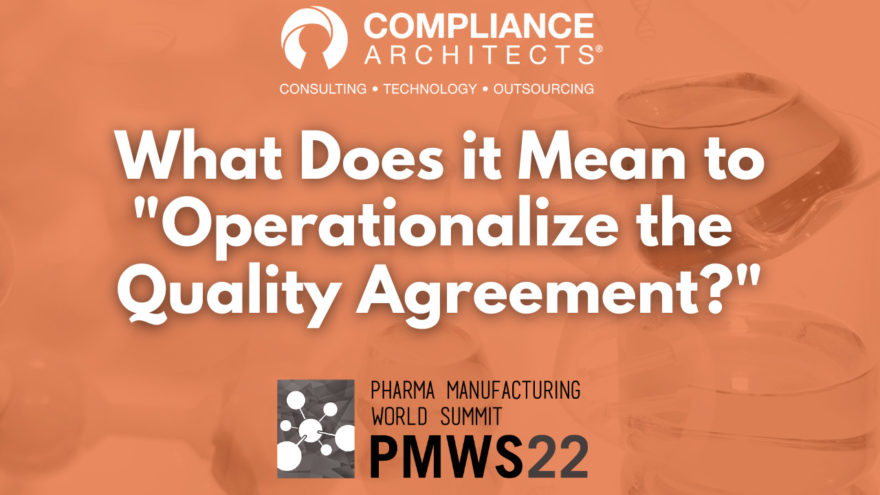This concept of “Operationalizing the Quality Agreement” comes from my background. I’m an attorney in addition to being an engineer. I’ve done a lot of contract work. The challenge with contracts is they’re full of either individual or mutual obligations.
They’re put in a textual environment. There are things you can do, can’t do, something to expect, responsibilities, etc. The challenge with those is that it’s not a very friendly tool to effectuate the relationship.
So, a starting point for Operationalizing the Quality Agreement is to “decompose the agreement into its constituent elements.” It’s like doing a regulatory decomposition where you look at the regulation you call out, “What are the discrete requirements?” So, you create these discrete requirements, obligations, responsibilities, and expectations and pull them out in separate line items. Then, you must aggregate them and make a management model, typically computer-based tools.
I wouldn’t call it digitization, but communication tools and cadence are such that those responsibilities, mutual responsibilities, and predecessor elements are identified, owned, and managed.
There also should be a governance framework over the operationalized activities that flow from the decomposition of the contractual elements such that a company has a clear view of what the CDMO / CMO was responsible for and that they’re performing their duties by their agreements and that the Sponsors are doing what they need to do to provide the information the oversight the governance to the CDMOs.
People need to own those responsibilities on both sides of those agreements. They should be part of a company of at least the Sponsor companies but also the CMO CDMO companies’ management review process such that we are fully implementing and adhering to the terms of our Quality Agreement, which, in theory, defines the activity set that will make this an effective relationship for the development, commercialization, commercial manufacturing of the product from the Sponsor.
So, this operationalization we’ve used is a decomposition and then a roll-up into an ability to manage in a regular operational context. Get away from the legal agreements. Leave that to the lawyers. Now, you should have… to get to that agreement; there should have been an understanding of where all those things are.
Often, in the operationalizing context, you may find things that you may need to tweak because if you haven’t looked at it from a day-to-day activity perspective, a week-to-week, or a month-to-month activity perspective, then you may have some surprises. There are benefits to keeping the agreement such that it is reflective of what you want to accomplish.

